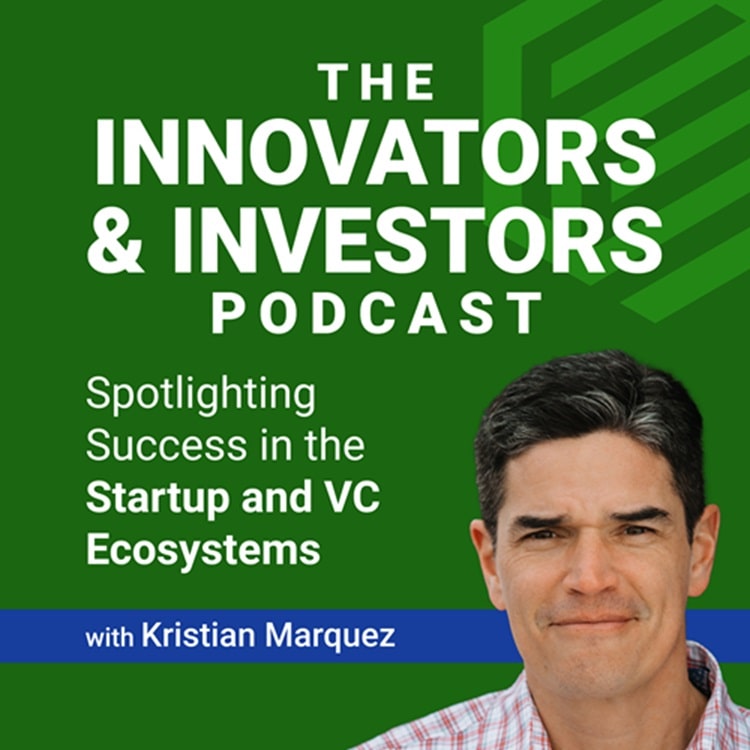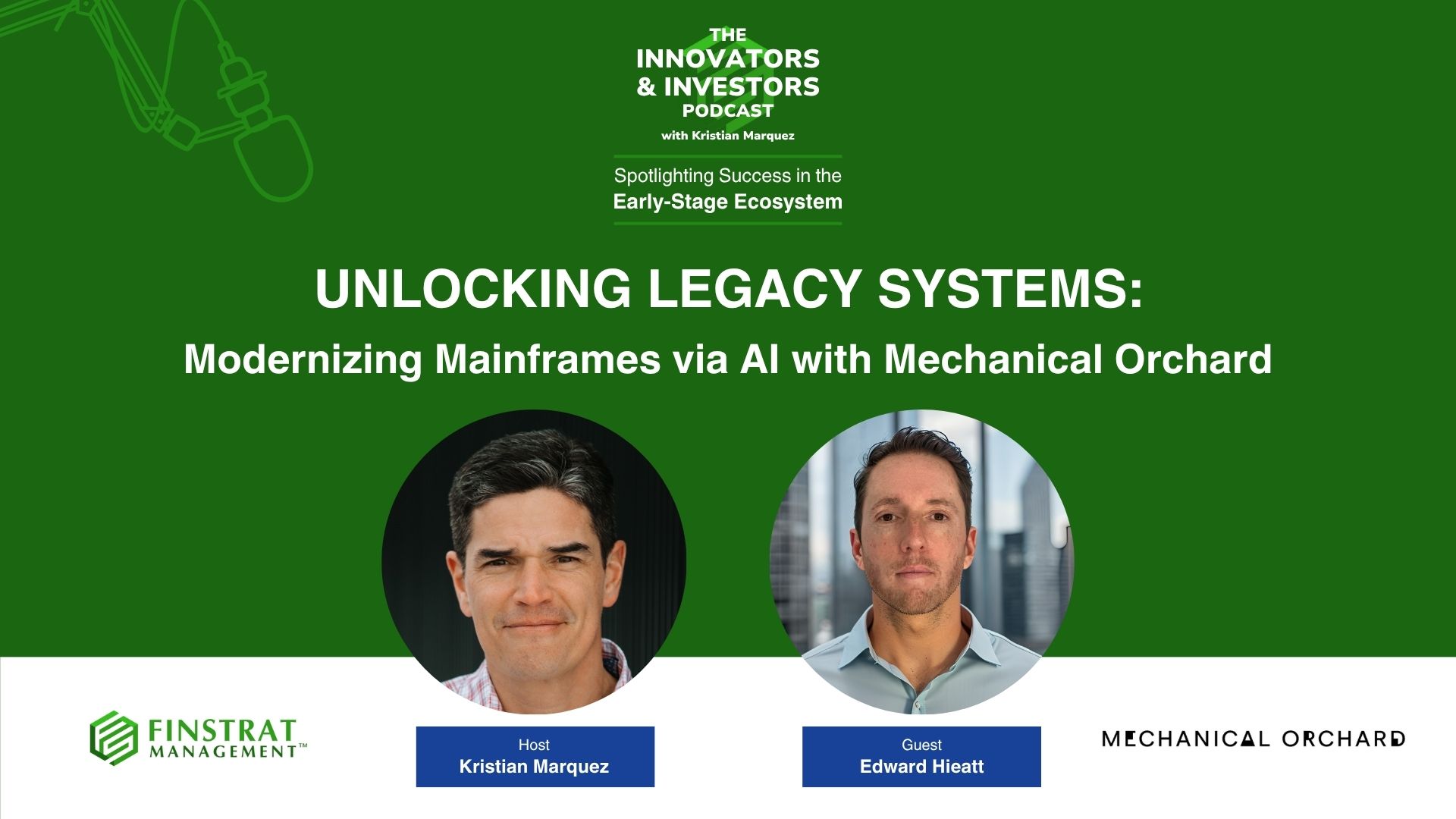Highlights
- Mechanical Orchard focuses on modernizing legacy mainframe systems critical to Fortune 2000 companies.
- The company’s innovative AI-driven approach targets behavior replication, not just code translation, enabling safer, incremental cloud migrations.
- Legacy mainframes still underpin core banking functions for 91 of the world’s 100 largest banks.
- Enterprises face decades-long migration challenges due to complexity, risk, and fractured codebases.
- Strategic partnerships with ThoughtWorks and investors like Google Ventures accelerate Mechanical Orchard’s growth and market reach.
- AI agents form a core technology, but adoption is grounded in pragmatism and clear business value.
- Edward Hieatt advises pursuing passion in technology careers to sustain resilience and success.
Summary
The podcast episode features Edward Hieatt, Chief Customer Officer and board member of Mechanical Orchard, a company specializing in modernizing legacy mainframe systems that underpin many large enterprises today. Mechanical Orchard addresses the complex and risky challenge of migrating decades-old mainframe software—often written in COBOL or PL1—from expensive, outdated hardware to modern cloud environments. Despite the prominence of cutting-edge technologies like cloud computing and AI, these mainframes remain crucial infrastructure for 70% of Fortune 2000 companies, including 91 of the top 100 banks worldwide. The problem lies in the inherent risk, complexity, and substantial potential for failure in such migrations, which has led to a multi-decade stalemate in transformative efforts.
Mechanical Orchard’s approach differentiates itself by leveraging AI agents to not merely translate legacy code line-by-line but to analyze the system’s behavior by recording data flows, mapping interdependencies, and iteratively testing that the new implementation matches the original’s exact functionality. This methodology mitigates the risk typically associated with “big bang” migrations, supports incremental modernization, and generates human-readable, optimized cloud-native code. Their initial manual implementation at a customer site, converting a 1960s mainframe to a modern cloud environment with significant operational improvement, provided the company with vital credibility and invaluable learning, enabling them to develop a robust, productized platform.
The discussion also touches on Mechanical Orchard’s go-to-market challenges, including the length and difficulty of enterprise sales cycles for such mission-critical modernization projects, and the importance of building deep partnerships with customers, investors, and service providers like ThoughtWorks. The company’s investor selection process was deliberate, emphasizing trust, strategic alignment, and value-add over simple capital injection. Key investors include Emergence Capital, Google Ventures, and corporate VCs from major target industries such as banking and insurance.
Regarding future trends, Edward offers a balanced view of AI agents, recognizing their transformative potential for enterprise automation but advocating a thoughtful, use-case-driven adoption rather than hype-driven endeavors. Finally, he shares a personal reflection encouraging aspiring technologists to pursue passion-driven careers, highlighting that genuine enthusiasm does much to alleviate the inevitable stresses of challenging work.
Key Insights
- Enduring Legacy Systems as Core Infrastructure: Despite perceptions that mainframes are outdated, they remain foundational for many industries, particularly banking, insurance, and government sectors. This enduring reality underscores a highly specialized challenge that cannot be addressed by conventional software modernization strategies emphasizing new tech alone. Their presence in critical operations and immense scale (hundreds of millions in weekly transaction volume) makes modernization paramount but daunting.
- Risk and Complexity Hinder Mainframe Migration: A major deterrent to replacing mainframe systems is the extreme risk involved—any downtime or error can lead to catastrophic financial and reputational damage. With systems often spanning millions of lines of convoluted, patched-up legacy code written in obscure languages, and a dwindling talent pool of experts, this creates a deadlock where organizations are caught between the unsustainability of maintenance and the perils of migration.
- Behavior-Based Modernization Paradigm: Mechanical Orchard’s strategy of monitoring actual data flows and dependencies, then iteratively validating AI-generated modern code for equivalence, shifts the migration focus from purely syntactic translation to semantic replication. This approach leverages the strengths of generative AI while counteracting its usual problems (non-determinism, hallucinations) through rigorous automated testing for functional parity, thereby reducing risk and increasing confidence.
- Incremental Modernization Enables Manageable Risk: The incremental, component-by-component migration approach contrasts sharply with “big bang” lifts and shifts, which historically have seen high failure rates. This method allows continuous operation of legacy systems, mitigates risk of service disruption, and progressively introduces innovation and cost savings, making modernization programs more palatable for enterprise leadership.
- Enterprise Sales and Strategic Partnerships are Critical for Success: Given the lengthy and cautious nature of enterprise procurement in regulated, mission-critical domains, Mechanical Orchard’s ability to empathize with client concerns, cultivate credibility, and build trusted relationships is key. Their partnership with ThoughtWorks extends their service delivery and market penetration capacity, demonstrating how startups in deep enterprise tech must collaborate with established consultancies to scale successfully.
- Investor Alignment Beyond Capital: Mechanical Orchard’s capital raising journey highlights the importance of selecting investors who bring strategic value, trust, and domain understanding, particularly amid an emerging market with unproven but substantial upside. Investors from corporate VCs in banking and insurance not only provide funding but also industry insight and potential pilot customers, while Google Ventures offers technology credibility and cloud platform synergy.
- Measured AI Adoption with Long-Term Vision: The discussion on AI agents reveals a mature perspective that acknowledges the transformative potential of AI-driven automation workflows while warning against chasing technology fads. Mechanical Orchard integrates AI meaningfully to solve a well-defined problem, rather than adopting AI for its own sake. They anticipate broader enterprise use cases but emphasize the need for demonstrable security, data privacy, and proven ROI before widespread deployment.
- Passion as a Career Compass: Edward Hieatt’s personal anecdote about pursuing technology despite discouragement reflects an essential lesson for future professionals—passion and genuine interest foster resilience and fulfillment in highly demanding fields. This is particularly relevant in the evolving landscape of enterprise software modernization, where innovation and perseverance dominate.
Conclusion
Mechanical Orchard stands at the forefront of solving one of enterprise IT’s most intractable problems: modernizing the vast, mission-critical legacy mainframe applications powering the world’s largest institutions. Their innovative AI-powered, behavior-focused approach offers a safer, incremental path to cloud migration, navigating risk and complexity with greater confidence. The company’s thoughtful strategy to market entry, partner ecosystem development, and investor alignment positions it well to disrupt a decades-old stalemate. Finally, their pragmatic yet visionary stance on AI and emphasis on passion-driven work culture provides valuable insights for the broader enterprise technology community.
Stay in touch with Edward Hieatt and his work at Mechanical Orchard.
Follow the show on your podcast channel of choice or listen below:



